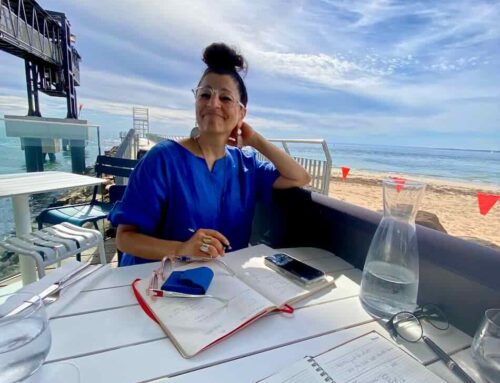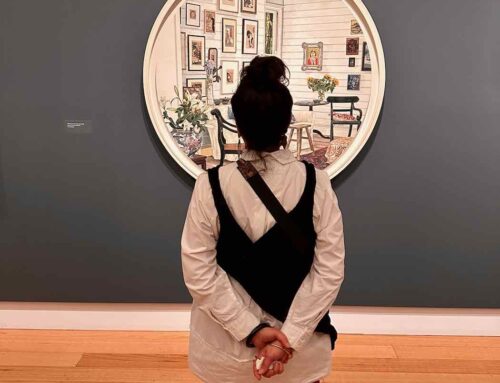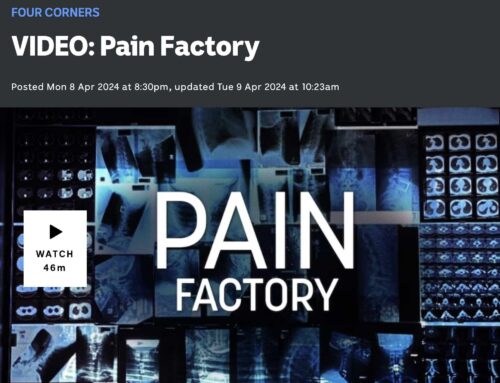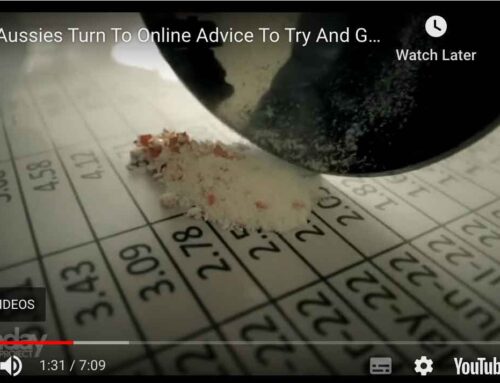I assumed the pain ‘industry’ was still learning about the management and treatment of chronic pain and that’s why communication was so poor. I assumed it wasn’t like that for other severe health issues.
But…
My mum had a stroke five weeks ago and it’s been an incredible communication insight.
The communication relating to mum’s history and her current state – from emergency through to second stage rehab has been as disconnected as my experience was in my first 4.5 years!
Horrific! Mum is 75. There’s a lot of history and she’s done much work to manage her health.
She knows a lot about herself. It’s all being ignored!
Team after team gather at the entry point of each of mum’s transitioning stages. Each team need to make their own assessment – I get that. But wouldn’t you gather all your resources in order to be able to help the patient best?
Wouldn’t you call the GP?!
I’m not sure the Australian My Health Record system failed because patients refused to trust the Government. I’m now more inclined to believe that the health profession itself failed the system – professionals just don’t take on history.
This was my experience with trying to build PainTrain – My Health Summary and it’s my experience with mum now.
‘Allergy’ appears to be an attractive universal language. Allergies appear to make their way through the system. Allergies are attached to the patient and well respected by the professional team and all hospital staff.
What a shame the patient and their history can’t receive this type of attention.
So Where Does it Leave Mum?
The same place I was left with my chronic pain experience. Gagged and misunderstood!
That’s not the most frustrating part. The worst of it is that it impacts mum’s healthcare so dramatically.
I’ve seen mum’s meds changed without her consent. I’ve seen her being left without daily treatments. I’ve seen her dignity affected. Altogether this adds up (or rather deducts) from the quality and effectiveness of her healthcare.
You all understand fatigue. Well, there’s loads of this monster present after stroke as the brain takes a while to recover.
Similar to chronic pain, stroke patients will have a unique journey and the effects of the stroke will impact and scar in individual ways.
My mum is fatiiiiiggggggueeeeeed big time. Mum couldn’t sleep due to the heavy, pounding snoring of her fellow patient (in conjunction with the 4am ipad use).
That was met with the idea to alter Mum’s antidepressant medication so she could sleep. As a result, her pain levels went up, her sleep patterns worsened and she was even more fatigued. This meant she couldn’t partake in her rehabilitation as best possible.
And that impacts her recovery. Mum is in the critical stages of brain plasticity. Apparently it’s six weeks before the brain plateaus… so much familiar language.
This also means she had unnecessary x-rays – an investigation into escalating pain levels (obviously due to med changes). She had two rounds of x-rays. Seems like mum’s first lot of x-rays from the previous rehab location didn’t transport with her (or weren’t good enough??).
When I spoke to the Dr in charge, it was explained to me that mum wasn’t very ‘cooperative’ when the team ‘tried to help her’ with her sleep issue. I asked if there was something I could help with, I could talk to mum. The Dr stated, ‘she won’t take a sedative’.
That response just makes me feel a patient and health care professional are never going to succeed in finding a way to communicate and respect one another. I explained why mum was unable to take sedatives and I also suggested no medication changes should be made without consulting mum’s GP or the Pharmacist – both of whom have been helping mum for years.
How can this not be a common-sense approach? I just don’t get it.
I explained mum was well aware of what she was talking about. Mum’s mind is sound and unaffected by stroke albeit her speech has been.
It’s sad to see quite a few healthcare professionals assume Mum can’t possibly know what she’s talking about.
Covid-19 added complications
Hospital wards have been confined for COVID-19 cases in Melbourne (as per many hospitals worldwide).
This has impacted mum’s care also which in turn means other patients have been impacted. Sound minds have been placed with unsound minds – for both patients, this is highly distressing and highly impacting of their health care and treatment.
Mum was in a ward for weeks with a dear lady who had to be repeatedly wheeled around the ward with her doll in hand while she wailed and cried loudly. Heartbreaking, but also affecting and traumatic.
Mum needs rest.
It’s a near war zone within the health system right now.
People at home are unable to get to appointments and treatments (hello, I’m busting for a program recharge and remedial massage), patients are unable to see loved ones and vice versa – yes, we are locked out of the hospital for COVID-19 reasons.
Healthcare staff are pushed to limits trying to manage this unprecedented situation. Resources are strained, and the risks being faced by all are just terrifying.
Effective Communication
(Here she goes again…!) But yes, I will again come back to the point of better communication.
Communication is impacting and its value is essential in health management and care. It not only impacts the quality of healthcare but it impacts resources, the patient’s support team, costs of care, outcomes of care, the reputation of the healthcare facility.
Communication is impacting from start to finish.
Telehealth is certainly pushed into play with COVID-19 and we’ve seen some amazing outcomes with it.
What heaven not to have to budge from home to speak with the GP! I can go for a walk instead without the physical implications of going to an appointment.
Telehealth has to continue post-COVID-19. It has to expand in its offering.
It has to. Just has to!
And there has to be a better way for the patient to feel understood and for the professional to more easily grasp the individual and their situation. Only then will healthcare fulfil the ‘care’ side of its description.









